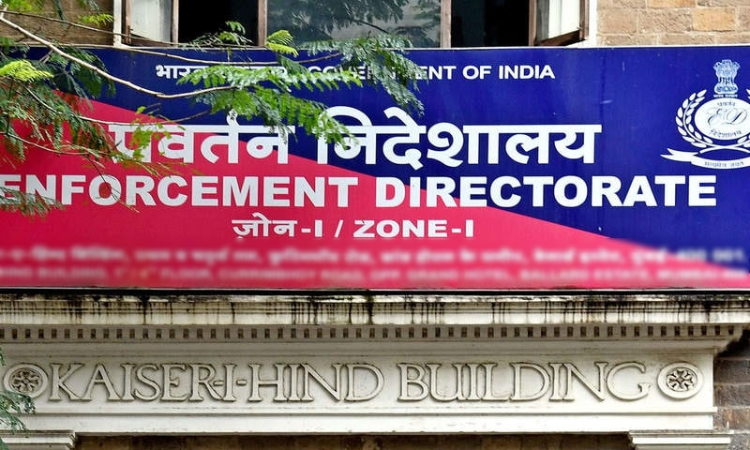VC Rules No Shelter For PMLA Accused To Evade Physical Appearance In ED Probe: Delhi High Court
Nupur Thapliyal
4 Nov 2025 5:49 PM IST

The Delhi High Court on Tuesday ruled that the videoconferencing rules do not operate as a shelter for a money laundering accused to evade physical and mandatory appearance in investigation by the Enforcement Directorate (ED).
Justice Neena Bansal Krishna observed that VC facility is a measure to facilitate evidence recording, not to protect an absconding accused from facing mandatory investigation.
Observing that VC was introduced to facilitate the progress of trial and to cause minimum inconvenience to the witnesses who otherwise are unable to travel, the Court said:
“However, it does not give an inherent right to the Petitioner (accused) to deny appearing in person even though his presence is mandatorily required. He cannot take a shelter behind VC Rules to assert that he can claim to join investigations through VC.”
“VC rules do not confer an inherent right upon an accused who has deliberately evaded the process to dictate the terms of their appearance. The Court's power to compel attendance is paramount, and the Petitioner cannot be allowed to claim shelter behind V.C. to assert that he can join investigations through this digital mechanism,” it added.
Justice Krishna dismissed a plea filed by one Shravan Gupta, challenging issuance of non bailable warrants against him in a PMLA case concerning the Agusta Westland chopper scam.
It was his case that by no stretch of imagination could he be said to have either concealed himself or made himself scarce from assisting ED in the investigation of the case.
He claimed that the Trial Court erroneously observed that he was trying to evade the investigation, even when the record showed that he joined the investigation physically when he was in India, responded to all summons issued to him and provided all the documents sought.
He submitted he had always been ready and willing to join the investigation by the mechanism provided under the law, including but not limited to the sanctioned procedure of video conferencing.
Dismissing the plea, Justice Krishna observed that where the accused has been served with summons or subsequent Bailable Warrants (BWs), and failed to appear, the Trial Court is not only justified but obligated to issue an NBW to prevent the proceedings from stalling.
However, the judge cautioned that, as a general rule, at the first and second instance, Courts must refrain from issuing NBWs, preferring a summons or bailable warrant if sufficient to secure appearance.
The Court concluded that Gupta's conduct demonstrated a deliberate and calculated attempt to evade the process of law, satisfying the main requirement for NBW issuance.
“The accused is a resident of London/Dubai and is alleged to have applied for citizenship of the Commonwealth of Dominica, though denied by him, indicating a concerted effort to place himself beyond the reach of Indian law, thereby confirming the Goswami exception that he “will not voluntarily appear,” the Court said.
It also rejected Gupta's argument that his willingness to join the investigation via Video Conferencing should negate the necessity of the NBW.
The Court said that it cannot be overlooked that the case was registered way back in 2014, but till date the investigations have been stalled purely on account of Gupta's “specious contention of joining through VC,” which could not be held to be justified.
Justice Krishna said that unearthing of evidence and the tracing of the complex money trail in an economic offence is only possible through detailed, continuous custodial interrogation, adding that physical presence of an accused is a necessary tool that the investigating agency is entitled to employ.
“And most significantly, the accused cannot be permitted to dictate the terms of investigation, like insisting on video conferencing in the instant case, when the complexity of the facts requires a detailed confrontation with voluminous documents, a process rightly held by the Trial Court to be difficult to conduct effectively via video conference,” it said:
Title: SHRAVAN GUPTA v. ED


